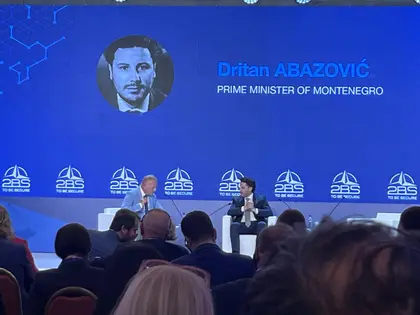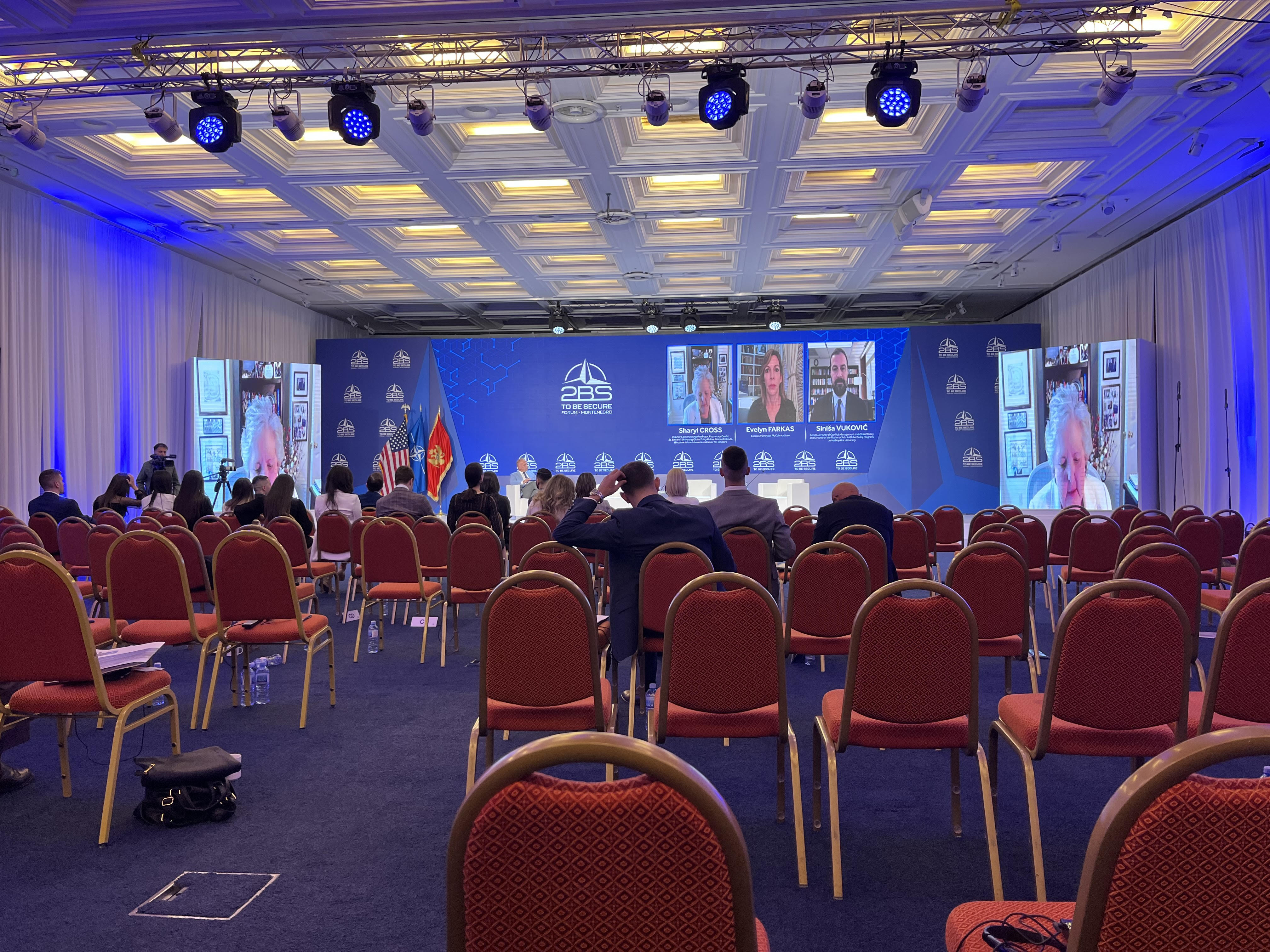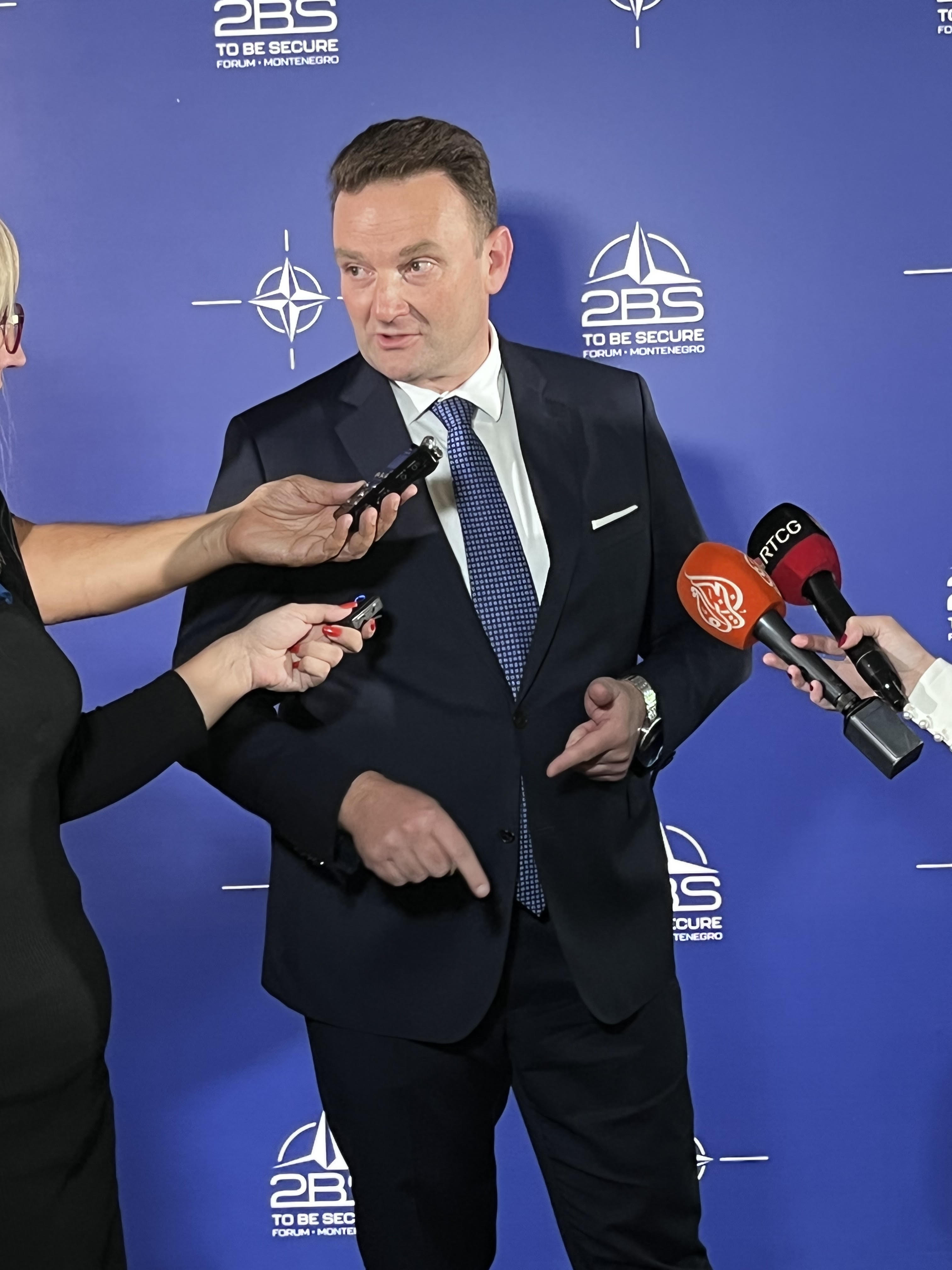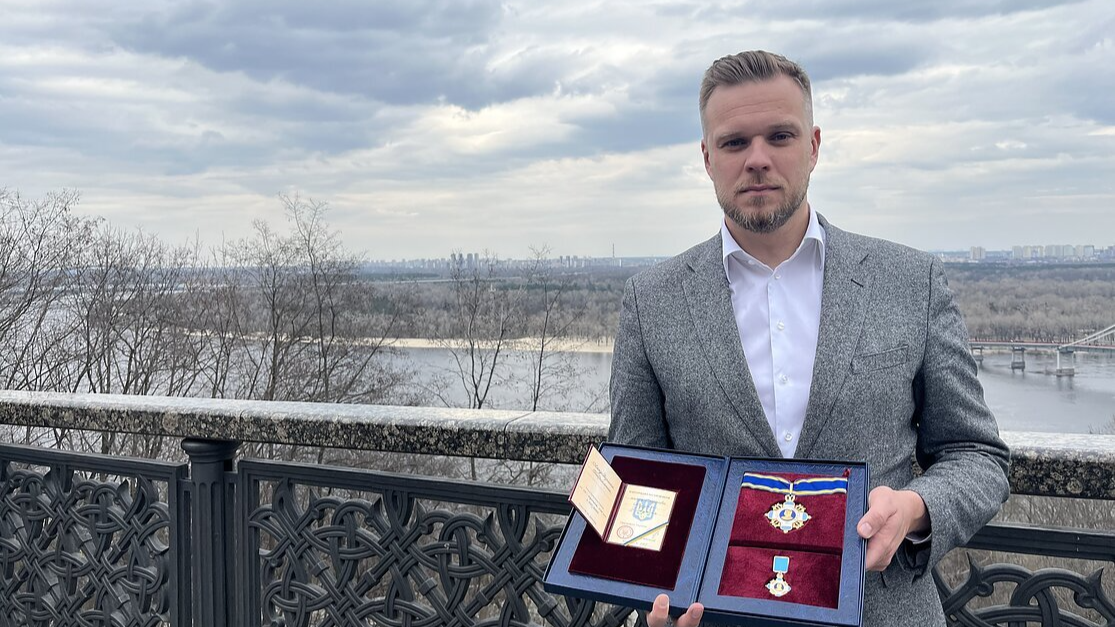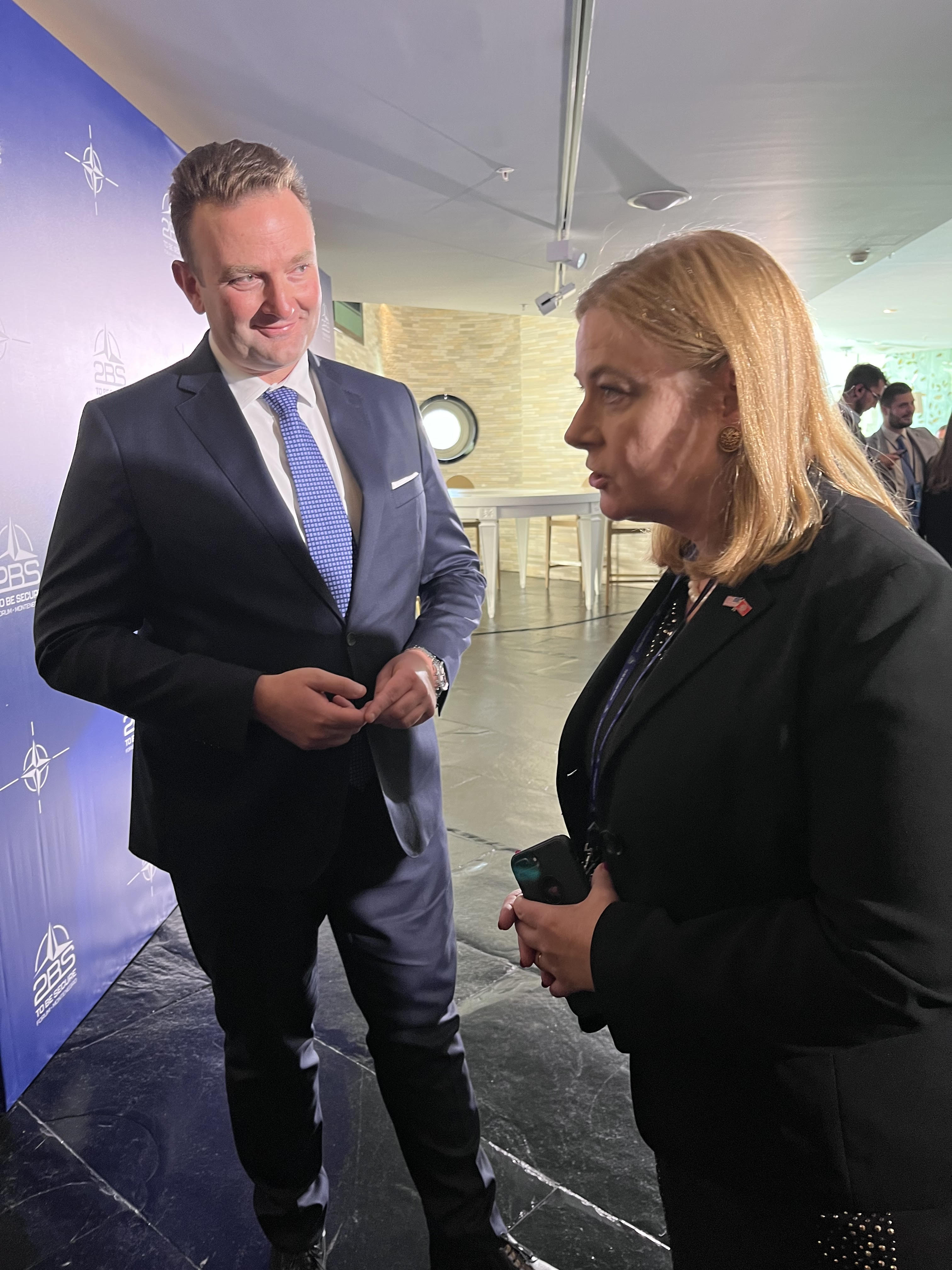During the middle of a NATO conference being held in Budva, Montenegro, Prime Minister Dritan Abazović fired the Director of the National Security Agency Savo Kentera while the latter was on stage speaking to dozens of diplomats and military officers from NATO countries.
The event began on Friday with a speech by the US Ambassador Judy Rising Reinke who openly criticized the Montenegrin Government and seemingly implied that some Montenegrin leaders, implying even the Prime Minister who sat only meters in front of her, were engaged in corruption and hired relatives for public jobs. Following the Ambassador’s strongly worded remarks, the Prime Minister was interviewed, on stage, by an al-Jazeera journalist who repeatedly insinuated that the Prime Minister was engaged in stoking ethnic tensions.
- Look at the latest Ukraine news that was released today.
- Look at the most up-to-date Ukraine news that came out today.
JOIN US ON TELEGRAM
Follow our coverage of the war on the @Kyivpost_official.
A European Ambassador who spoke with the Kyiv Post said that he felt that criticisms of the Prime Minister was warranted as the Prime Minister’s decision to back Orthodox Church leaders over European priorities had side-tracked Montenegro’s trajectory of moving towards Europe by at least one to two years.
Ivana Stradner an Advisor to the Foundation for Defense of Democracies and Balkans expert said to the Kyiv Post that, “all events in the Balkans are connected, and Moscow hopes to expand its influence in the Balkans, which it sees as another theatre where it can challenge the West. Russia has been destabilizing Bosnia, Kosovo and Montenegro for a long time. The situation in Montenegro is just the latest event after Putin’s proxy in Bosnia, Milorad Dodik, threatened with secession. Kosovo is also on Putin’s menu. The latest tensions between Serbia in Kosovo undermine regional stability and present an easy target for the Kremlin. The latest protests erupted following a law stating Serbs living in Kosovo must switch their license plates from Serbian to Kosovar.” Many of these policies are viewed as being pro-Serbian and ultimately being exploited to serve pro-Russian interests.
Recently, flare-ups of tensions in the Balkans have raised the alarm that fighting could break-out being Serbia and Kosovo which would then bring Albania and other countries into the milieu. It is thought that the Serbian President’s desire to stoke tensions may be related to his desire to position himself as the regional “strongman,” able to keep the situation from unraveling, thus coercing the West to back him.
Later on Thursday, as Security chief Savo Kentera began to address the high ranking crowd, pandemonium broke-out as he was informed that he had been fired by the Prime Minister. The Security Chief commented that this was a sign that they would need to fight even harder now to combat corruption and Russia’s influence in the region. Last week, the Security Chief had allowed for the deportation of several Russian diplomats.
After finishing his remarks, Kentera left the ballroom to be met by about a dozen journalists to whom he made impromptu remarks.
Following Kentera’s narration of events, the US Ambassador spoke, saying that though who is fired or hired is the right of the Prime Minister, “we must deny Russia a foothold in this country. And we strongly urge Montenegro to fight the malign interest of Russia in Montenegro and in the Western Balkans region.”
Montenegro, a member of NATO, has been accused of serving Russia’s interests via its pro-Russian Prime Minister who is thought to be aligned with pro-Russian Serbian President Alexander Vucic. Earlier this year, the Montenegrin leader aligned with the pro-Russian Orthodox church in a move that angered EU diplomats as it delayed reforms necessary for Montenegro to join the European Union.
Stradner commented that for “Russia, Montenegro represents NATO’s soft underbelly as Putin seeks to project influence into the Adriatic Sea. Numerous cyber attacks and information operations show that Russia seeks to exploit Montenegro’s membership in NATO as a vulnerable member of the alliance, and to undermine Montenegro’s bid to join the EU.”
Russia’s role in Montenegro, a country where many outdoor advertisements are even written in Russian due to the large number of Russian tourists and residents, has continued to be large. Stradner noted that “Russia has been using the Russian Orthodox Church to manipulate the Serbian Orthodox Church in order to sow ethnic tensions among Montenegro’s ethnic Serb population and promote pro-Russian policies. The Serbian Orthodox Church leverages its influence in Montenegro through participation in political processes. It heavily influenced the selection of Montenegro’s previous pro-Russian Prime Minister, Zdravko Krivokapic. In Montenegro the Serbian Orthodox Church aims to undermine pro-NATO and pro-Western initiatives and bolster the Kremlin’s influence.”
It is thought that the Prime Minister’s actions on Friday could trigger greater instabilities in the country. In 2016, a Russian-backed coup attempt had sought to overthrow the government.
You can also highlight the text and press Ctrl + Enter


